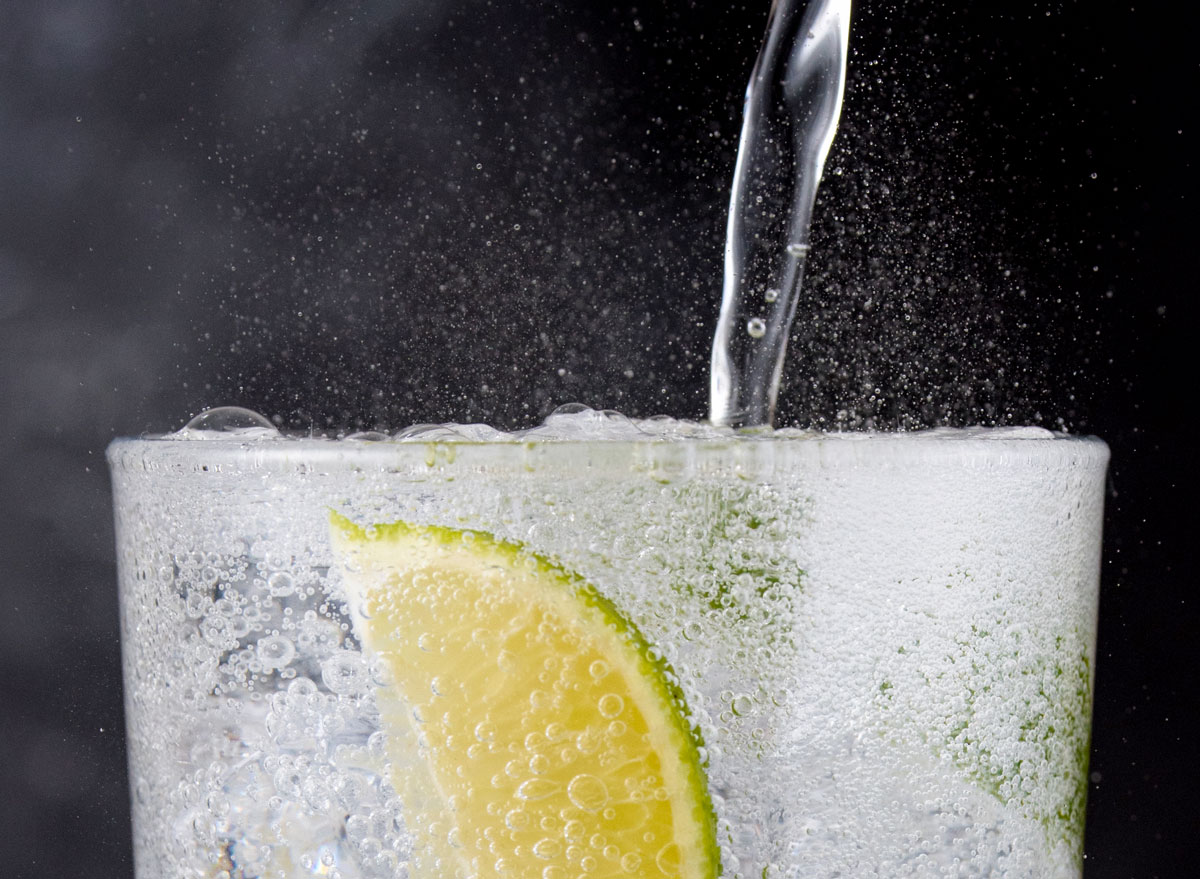The 24 Unhealthiest Drinks for Your Health, According to Science’ What you drink is just as important as what you eat when it comes to taking care of your body. “Staying hydrated each day is essential to our health and well-being,” says Roxana Ehsani, MS, RD, CSSD, LDN, registered dietitian nutritionist in Miami, Florida.
Besides avoiding dehydration, drinking enough fluids helps your body regulate its body temperature, improve sleep quality and mood, and also aids your body’s delivery of nutrients to cells (keeping you healthy), according to Harvard T.H. Chan School of Public Health.
The 24 Unhealthiest Drinks for Your Health, According to Science
But not all drinks are good for your health.
“Every drink may have a different composition of ingredients,” adds Ehsani. “Some drinks may be loaded with tons of added sugar, sodium, caffeine, or alcohol, which won’t support our health and can increase our risk for chronic conditions or diseases.”
Based on their high levels of unhealthy ingredients, such as added sugar and saturated fat, these are 24 of the worst drinks for your health, according to registered dietitians and scientific studies. Read on, and for more, don’t miss Is Carbonated Water Bad for You? 8 Side Effects of Drinking It.
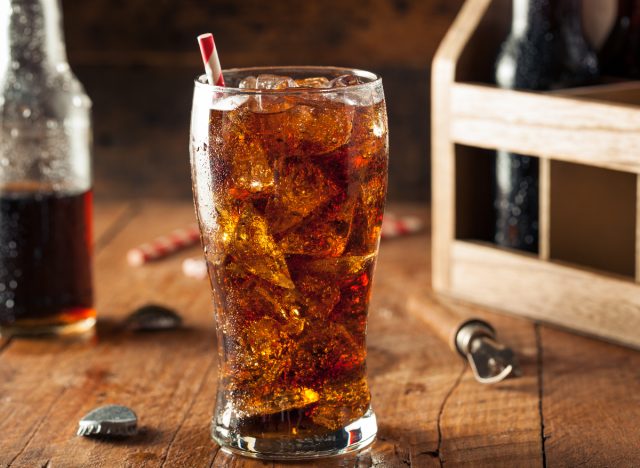
There’s no denying a can of cold soda is a refreshing (and yummy) beverage to sip on, but it’s one of the unhealthiest drinks you can choose.
“A 12-oz can of soda contains 155 calories, and 147 of those calories come from sugar, which is equal to almost 9 teaspoons of sugar,” says Ehasni. “Drinking soda is bad for your dental health, and it is also linked to increased risk for obesity, diabetes, heart disease, gout, and even premature death. There’s really nothing healthy at all about soda.”
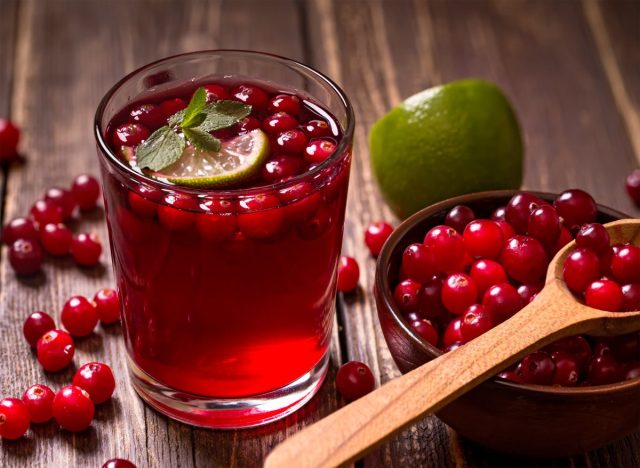
If you have a urinary tract infection (UTI), you may start reaching for cranberry juice; however, this ruby red beverage may be one of the worst drinks for your health if you consume it regularly.
“There’s evidence that cranberry is good for urinary health, but many cranberry cocktails have a high amount of added sugar, equal to other fruit drinks,” says Ginger Hultin, MS, RDN, CSO, integrative registered dietitian nutritionist in Seattle, Washington. “Sugar can actually be an irritant to the bladder. Cranberries are very tart, so if you drink the real thing–100% juice without sweetener–it’s a bit of an acquired taste.”
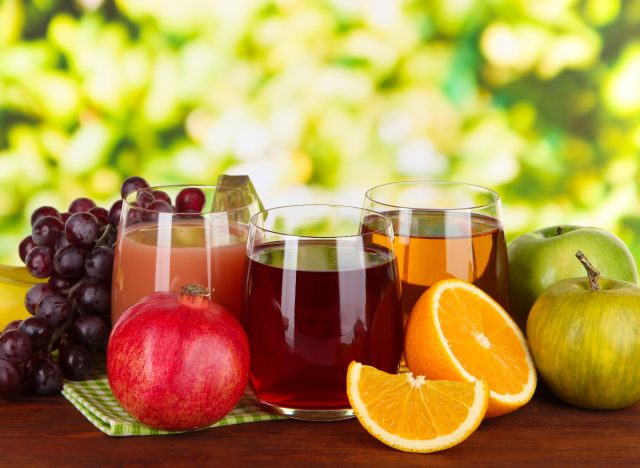
While juice may be made from fruit, that doesn’t mean it’s healthy.
“Juicing strips the fiber from produce, so it is less satiating. Juices [that aren’t marked as ‘100% juice’] are also often packed with added sugar,” says Anya Rosen, MS, RD, LD, IFNCP, CPT, registered dietitian and founder of Birchwell Clinic. “Make sure to choose juices that are made with only vegetables, and pair it with fat and protein to keep blood sugar stable.”
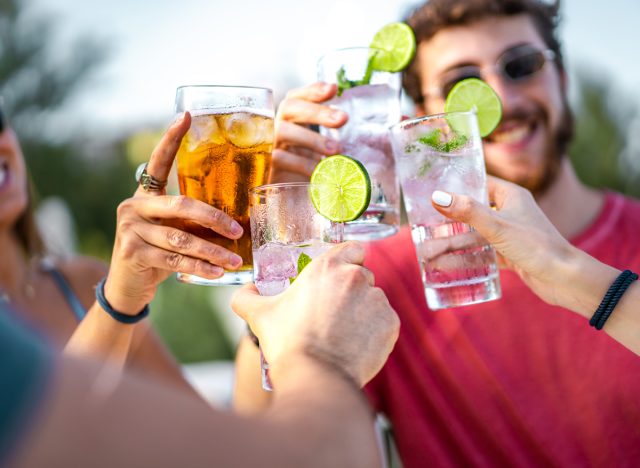
Winding down after a long day with a glass of wine or pint of beer isn’t doing your body any good.
“Drinking alcohol regularly over time can drastically worsen your health,” says Ehsani. “Alcohol consumption affects the entire body, its systems such as the immune system, and it can damage internal organs including the brain, heart, and liver. Furthermore, it can greatly increase one’s risk for developing serious health conditions, diseases, and cancer.”
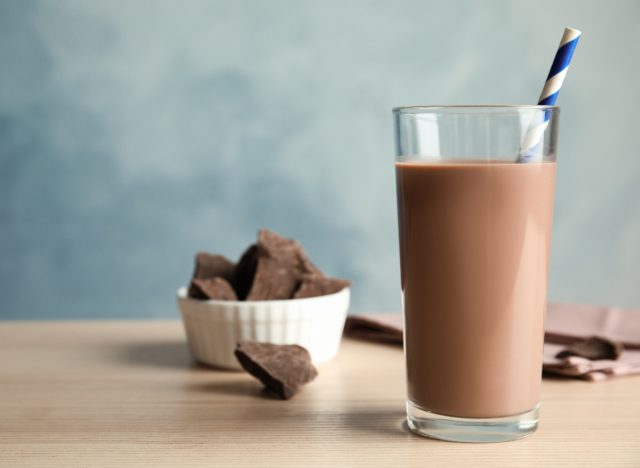
Dairy milk can be a healthy choice, but if you’re a fan of chocolate or strawberry milk, it can be one of the unhealthiest drinks for your body.
“Milk on its own has been getting a bad rap lately, but it’s actually quite rich in nutrients, contains protein, bone-building calcium, and vitamin D,” says Ehsani. “However, when flavours are added to it, such as strawberry or chocolate, that added sugar turns your nutritious glass of milk into an unhealthy beverage higher in both total sugars and calories, which can increase one’s risk for developing obesity and becoming overweight.”
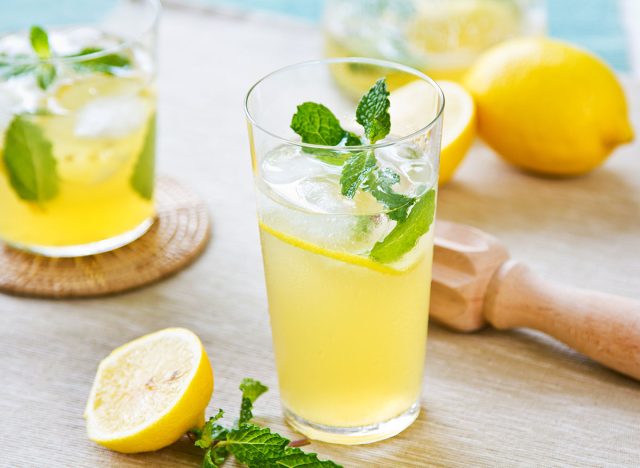
Tart and refreshing, most lemonades have tons of sugar—upwards of 25 grams per cup—to cut the sour punch. Unfortunately, sugar-sweetened drinks like lemonade have been linked to insulin resistance and blood sugar spikes.
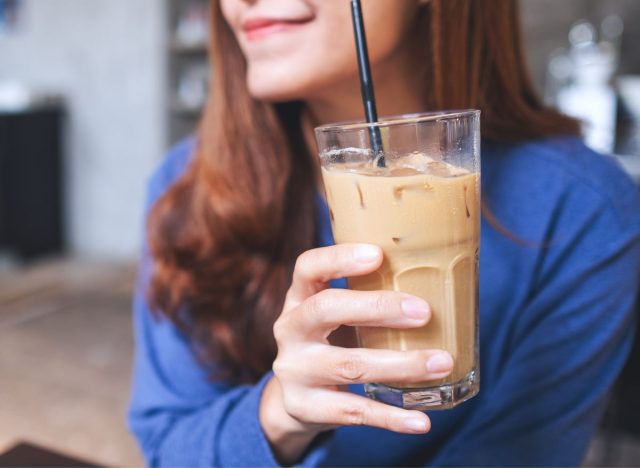
Many people love their mocha lattes and Frappuccinos (or any sweetened coffee blended drinks), but these pack tons of added sugar and unhealthy fats.
“They typically have flavoured syrups such as caramel, then a few pumps of a type of flavour (that is loaded with sugar), then toppings that may include whipping cream, caramel or a chocolate drizzle,” says Ehsani. “If made with whole milk, it adds saturated fat, of which a high intake of is bad for heart health. One of these drinks may even contain the same amount of calories as a meal. For example, one Starbucks Caramel Ribbon Crunch Frappuccino contains 470 calories, 60 grams of sugar, and 22 grams of fat. So, it’s best you avoid these, and choose unflavored, unsweetened coffee drinks in their place.”
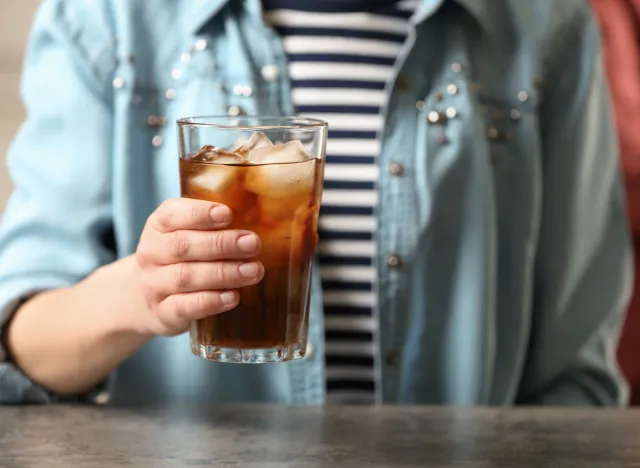
Just because you choose diet soda over regular soda, doesn’t mean it’s any healthier. One study of people who drink diet soda found that it increased their risk of cardiovascular-related health issues.
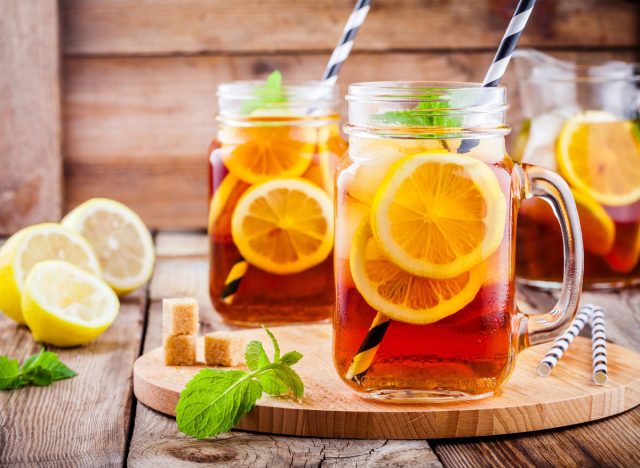
This southern staple has the word “sweet” in its name, which is a dead giveaway that it’s packed with sugar with some bottled varieties containing upwards of 48 grams of sugar per bottle. For perspective, the FDA recommends capping your daily intake of added sugars at 50 grams. Unfortunately, the consumption of sugary drinks has been linked to an increased risk of type 2 diabetes.
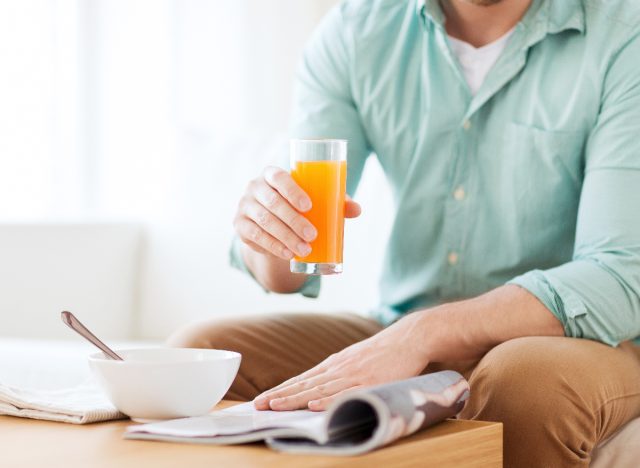
Don’t get orange drinks confused with regular orange juice; they are different.
“When you look at the label, an orange-flavoured drink often consists of water, added sugar/syrup, and artificial flavours that make it look and taste like citrus–while orange juice is simply squeezed oranges, orange drinks generally contain no actual fruit juice,” says Hultin. “While you can get vitamin C from these drinks, there’s little other nutritional value and in its simplest form, these are just sugar-sweetened beverages which studies link to many negative health outcomes when consumed regularly.”
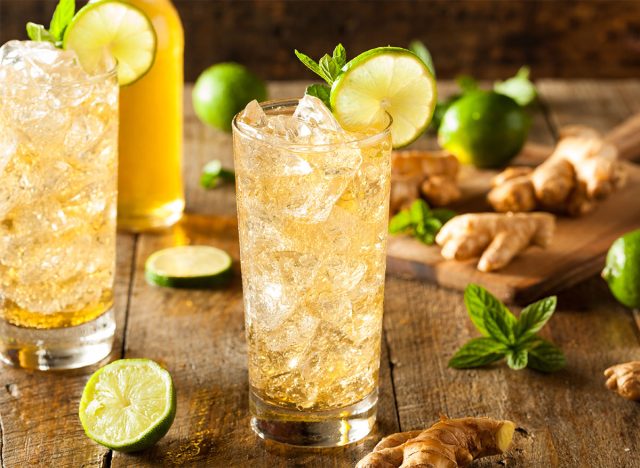
Sure, ginger beer doesn’t actually contain any alcohol–but it still contains tons of sugar. In fact, one study found that ginger beer contained the highest amount of sugar per serving—38.5g of sugar—more than any other soda.
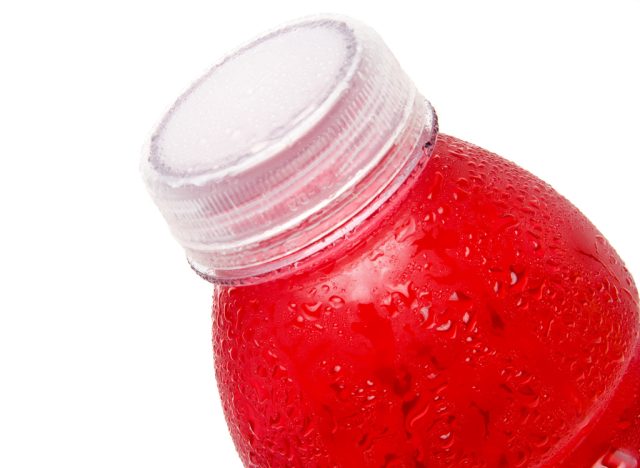
While they may tout extra nutrients, the benefits of vitamin waters may be outweighed by all the added sugar, making them one of the unhealthiest drinks you can sip on.
“These are especially tricky,” notes Ehsani. “Someone may have the best intentions and be trying to choose healthy options for themselves and their family and be fooled by the vitamins on the label. Although there are vitamins in this bottle of enhanced water, it also comes with the addition of 32 grams of added sugars, which is doing your body more harm than good. Added sugar consumption is linked to weakened immune health as well.”
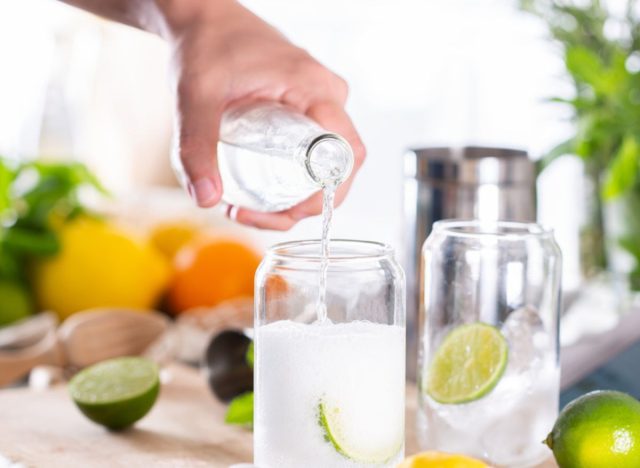
Tonic water is a great mixer for alcoholic drinks (hello, gin and tonic!) But alone, tonic water is also loaded with sugar to make it less bitter due to the quinine. One 12-ounce serving of tonic water contains 32 grams of sugar.
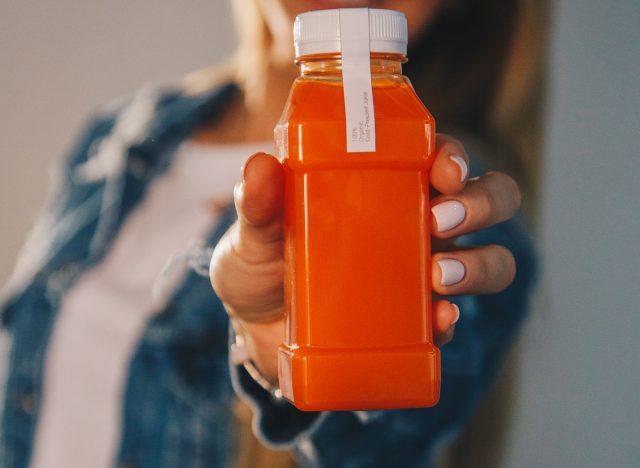
Bottled smoothies can be deceptively one of the unhealthiest drinks. Even though many are fruit-based, when it comes to bottled smoothies, also have tons of sugar. One study found that bottled smoothies actually contained more sugar than a can of soda.
“Read the labels carefully because not all bottled smoothies are created equal. Look for a variety that includes veggies and has minimal added sugar rather than one that is based solely on fruit or one that contains added sugars,” says Hultin.
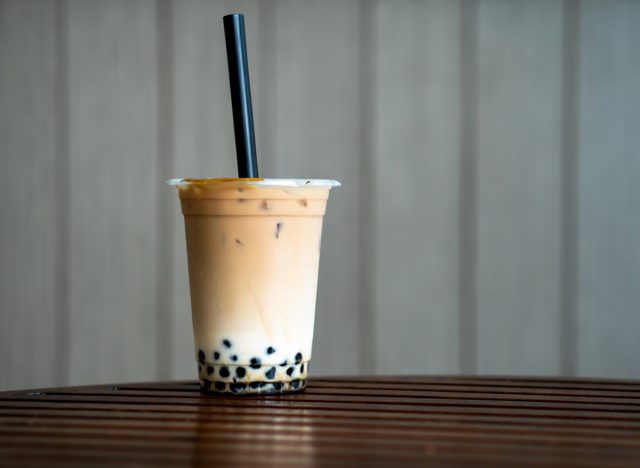
While bubble tea, or boba, can be a fun beverage to drink because of the many flavours available and the tapioca pearls at the bottom, be cautious about the high sugar content that is generally found in the recipe.
“Boba actually counts as a sugar-sweetened beverage and studies have shown that a 16-oz boba can exceed the upper limit of added sugars for an entire day. A simple way to continue to enjoy your boba is to request no added sugar (ideally) or a 1/4 or 1/2 of the sweetener to help reduce your added sugar intake,” says Hultin.
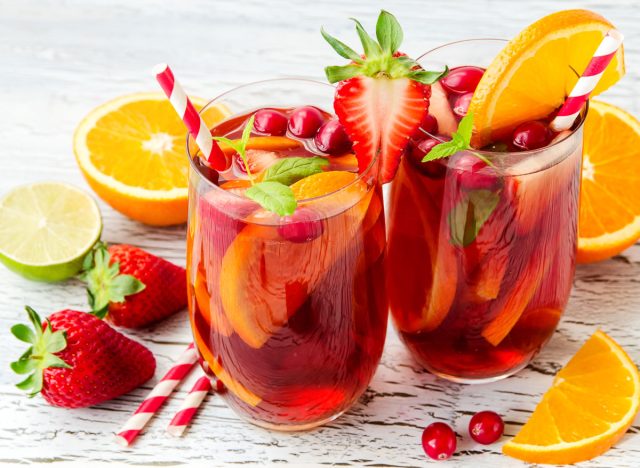
Sweet and tart, fruit punch tends to be low on fruit and high on sugar. And one study has linked sugar-sweetened drinks (including fruit punch) to an increased risk of type 2 diabetes.
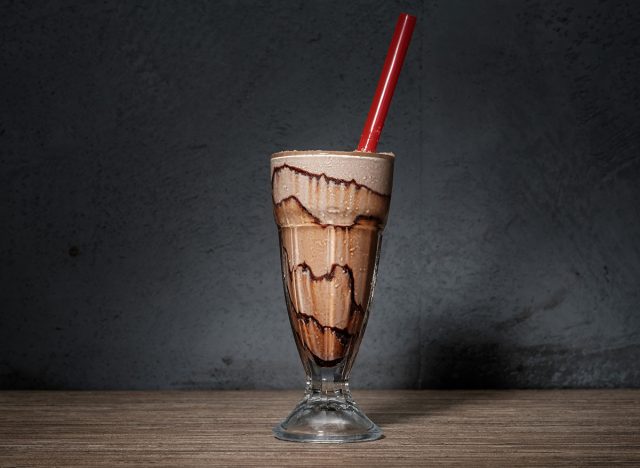
Milkshakes qualify as both a drink and dessert, and it’s not just the sugar that makes them one of the worst drinks. These blended beverages are high in saturated fat, which is a nutrient that research links to an increased risk of coronary heart disease.
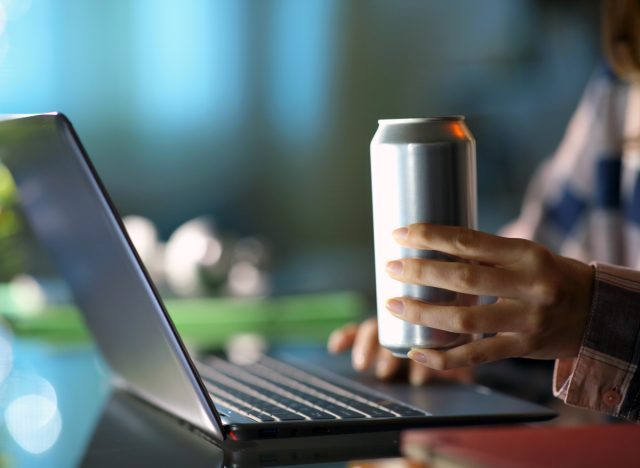
While energy drinks provide a boost of energy thanks to caffeine, they may negatively impact your digestion. One study linked energy drinks to gastritis (damage to the lining of the stomach).
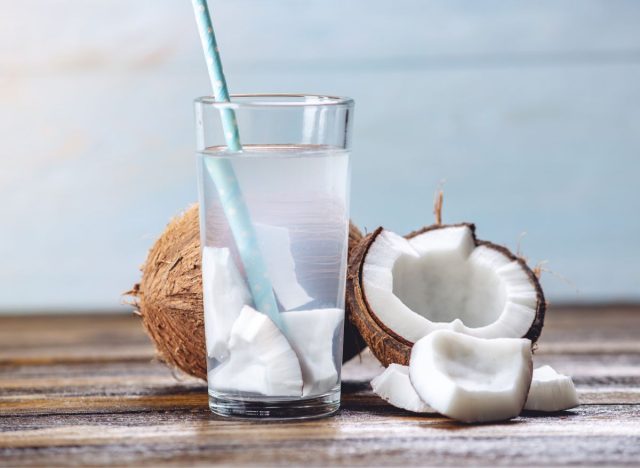
If you prefer flavoured coconut waters, they are likely sweetened. And one bottle of sweetened coconut water has nearly 32 grams of sugar. Compare that to one serving of unsweetened coconut water, which contains 8 grams of sugar.
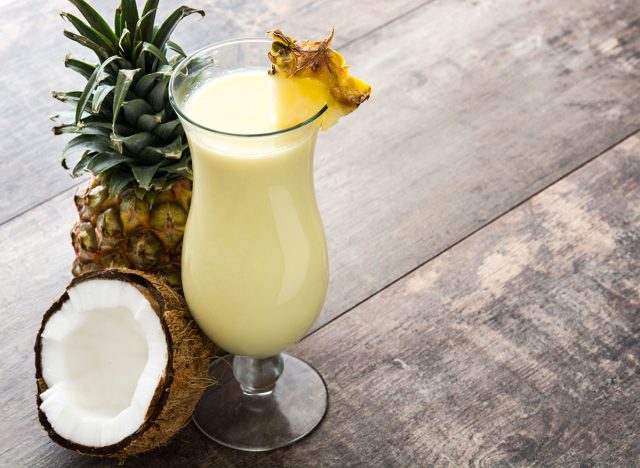
Frozen drinks like pina coladas and daiquiris are a staple at the beach and on vacation, but they are some of the unhealthiest drinks for your body.
“Tropical drinks may have a place while on a vacation here and there, but it’s important to know how they could affect your health, especially if they’re your go-to drink or you consume them often,” says Hultin. “These sweet blended alcoholic drinks (you can also order them non-alcoholic), have a high amount of added sugar but have the challenge as well of being high in saturated fat because of the coconut or whipped cream used in the drink.”
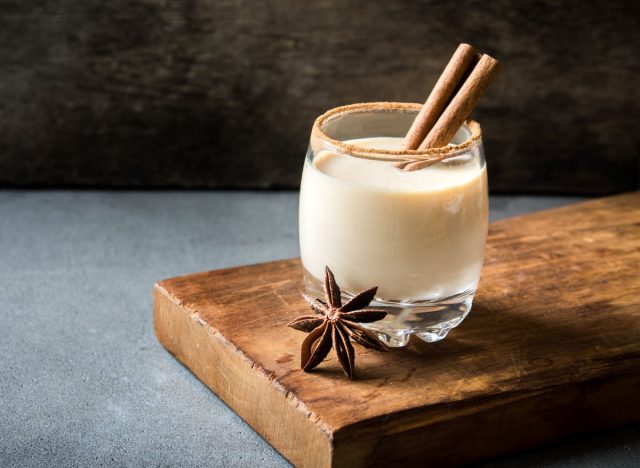
Eggnog on its own is not a low-calorie or low-sugar drink. But even if you think a “light” or “low-fat” version of eggnog is healthier, you’re mistaken. To make up for less fat, manufacturers add more sugar to egg nog. Recent studies show that people who drink lots of added sugar are at a higher risk of fatty liver disease.
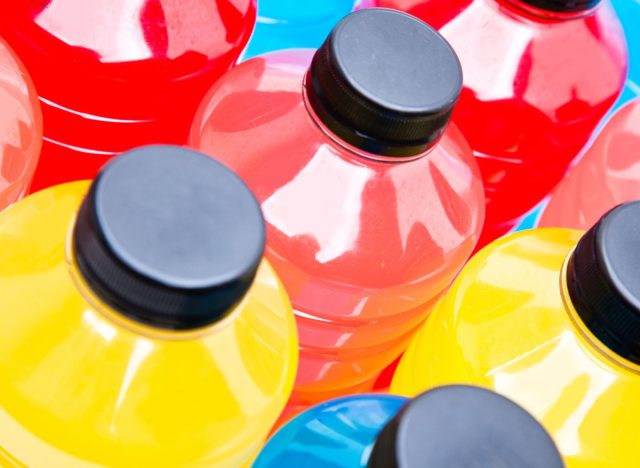
While electrolytes and sodium are crucial elements of sports drinks for athletes, they’re one of the unhealthiest drinks for your body because they also contain serious amounts of sugar. Studies associate sugar-sweetened drinks, like sports drinks, with an increased risk of gout.
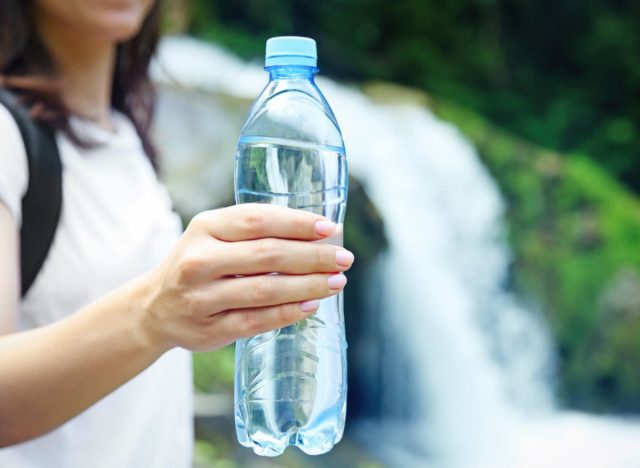
Plain water is super healthy, but if you choose bottled water, you may be putting yourself at risk of drinking dangerous chemicals. One study by Consumer Reports of over 40 popular bottled water brands found that certain brands of both still and sparkling bottled glasses of water contained toxic PFAS (per and poly-fluoroalkyl substances).
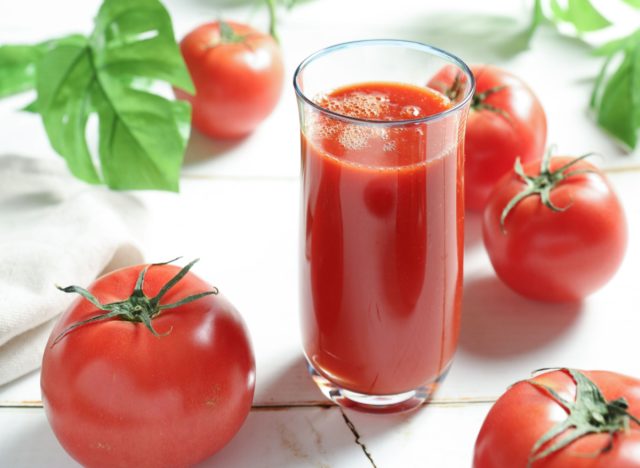
Tomatoes themselves are certainly healthy for you, but if you take a look at the nutrition label on a can of tomato juice, you’ll notice they are loaded with added salt. Too much salt can lead to an increased risk of stroke and cardiovascular disease. If you want to reap the antioxidant benefits of tomato juice, make sure to look for low-sodium varieties.
